The internet has completely changed how people search for jobs. Gone are the days when we had to read through the newspaper to find out-of-date job listings – now, we have job boards, web job portals, and social networks right at our fingertips.
Job boards receive nearly 50% of global job applications yearly, making them one of the most popular options for job seekers. But what are they? And what else is there to know?
Understanding the role of job boards
Job boards are websites or online platforms where employers can post job openings, and job seekers can search and apply for those positions. These platforms make it much easier for both parties to find what they are looking for.
Employers post open positions on job boards, providing details such as job title, location, responsibilities, and qualifications. Job seekers can search for relevant listings using filters like location, industry, or job title. Once they find a position they are interested in, they can apply directly through the job board or be redirected to the employer’s website.
What options are out there?
General vs. niche
| General | Niche |
| Cater to a wide audience. Host diverse job opportunities across various industries. Involve increased competition for job listings. Can be challenging for specific roles to stand out. | Focus on specific industries, job types, or demographics. Have a more targeted approach to job searching. Job listings match the specific needs of the audience. Offer a narrower pool of job opportunities. |
💡Tip: Recruiters should choose general boards for diverse positions and niche boards for specialized roles.
Free vs. paid
| Free | Paid |
| Basic services without associated costs. They are accessible and budget-friendly, making them an attractive option for those with limited resources. They may have limitations such as fewer features and higher competition for job listings. | Require fees for job listings and premium features. They offer advantages like targeted candidate pools, premium features, and reduced competition. Can be costly and offer limited access for those on a tight budget. |
When choosing between free and paid job boards, think about your budget, specific hiring needs, and feature requirements. Recruiters looking for advanced options may lean towards paid boards, while companies with infrequent hiring needs might find free options more suitable.
Top free and premium job boards
With so many job boards to choose from, it can be overwhelming to know where to start. Let’s look at the top free and premium job boards to help you find what best suits your needs.
Indeed

Indeed is a widely used online job search and employment platform that aggregates job listings from various sources, allowing individuals to search for and apply to jobs. It provides options for both free and paid job postings. The free option allows users to post jobs without incurring costs, while Sponsored Jobs, a paid feature, offers increased visibility.
Sponsored Jobs operates on a pay-per-application basis, with an instant match feature and the option to pay only for applications that meet specific screening criteria.
Pros: Indeed has the potential to reach a broad audience, making it an effective platform for job exposure. The pay-per-application model can be cost-effective for certain recruitment needs.
Cons: High competition can make it challenging for job postings to stand out. The diverse user base may lead to variations in candidate quality, as anyone can apply for jobs.
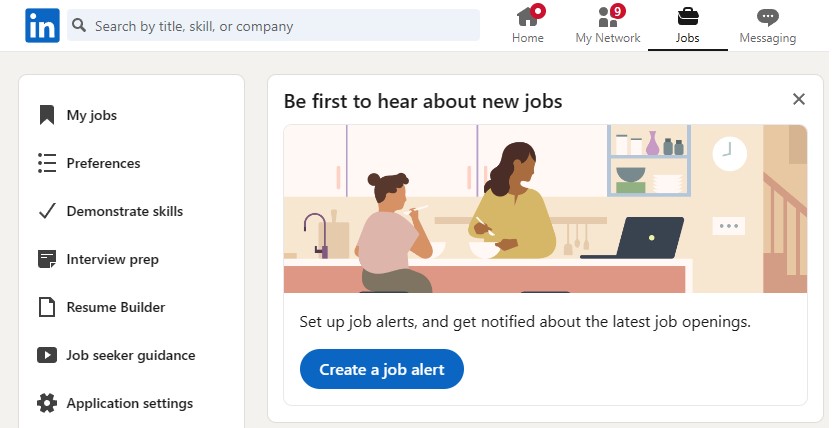
LinkedIn is a professional social networking platform designed for individuals and businesses to connect, network, and build their careers or company profiles. It offers both free and paid recruitment tools, with the free version allowing basic features such as sharing jobs, searching for candidates within connected circles, and managing communications manually. The paid version provides advanced search filters, InMail messaging, project sharing, and talent pool access.
Advantages: LinkedIn offers extensive network accessibility, enabling recruiters to tap into a large pool of professionals. The paid tools provide enhanced visibility and access to various advanced features.
Challenges: Users may receive unsolicited messages, and there can be a learning curve associated with maximizing the platform’s potential.
Google for Jobs
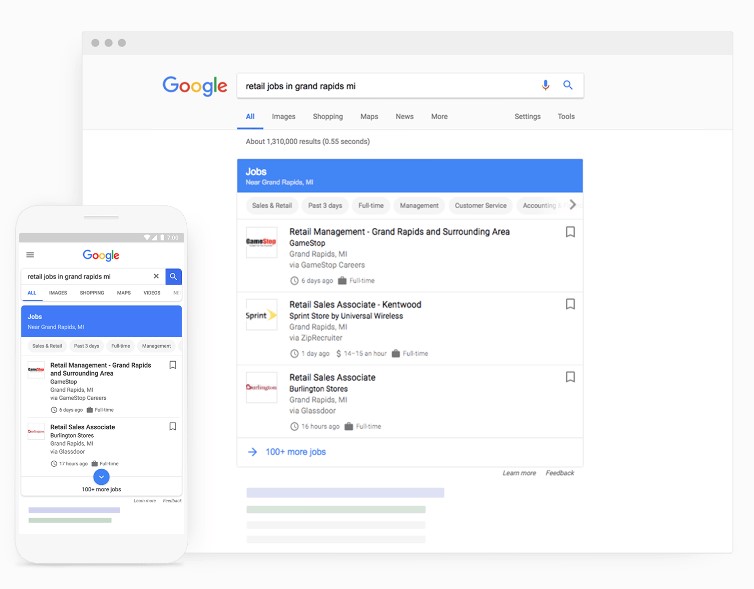
Google for Jobs operates within the broader Google ecosystem, aggregating job listings and offering search, filter, and sort capabilities. Employers must optimize their job postings to appear in Google for Jobs results. Users can save job listings and set up email alerts for new postings matching their criteria.
Advantages: Google for Jobs benefits from Google’s extensive reach and integration.
Disadvantages: The platform may pose challenges in terms of optimizing job postings. Plugins might be necessary to facilitate this process.
Glassdoor
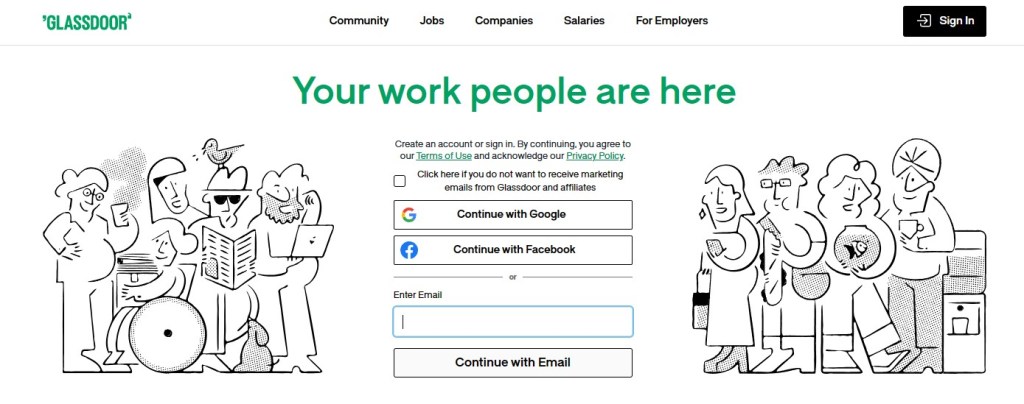
Glassdoor is a website and job search platform that provides company reviews, salary information, and job listings, assisting job seekers in making informed career decisions. The free account includes basic features, while the Enhanced Profile is a paid option that provides advanced insights for job seekers and employers.
❓Did you know? Glassdoor is a sister company of Indeed, and job postings on Indeed are automatically shared on Glassdoor.
Advantages: Glassdoor serves as both a job board and a company review site, offering a view of potential employers. It benefits from the association with Indeed.
Disadvantages: Challenges may arise from biased reviews or limited sample size, potentially impacting the accuracy of company representation.
SimplyHired

SimplyHired is also partnered with Indeed, and job listings on Indeed are featured on SimplyHired without additional cost. While you don’t need to pay for the Indeed listing to get it featured on SimplyHired, sponsored jobs offer increased visibility.
Advantages: SimplyHired provides a broad range of job listings, leveraging the partnership with Indeed.
Disadvantages: The functionality for employers on SimplyHired may be limited compared to other platforms.
Jobcase

Jobcase caters specifically to the U.S. job market. While it is free to post a job on Jobcase, there are paid options for employers, including job promotion, hiring events, sponsored content in the Jobcase community, and custom hiring solutions.
Advantages: Jobcase offers social media features and focuses on creating a supportive community.
Disadvantages: The platform’s community-oriented approach may result in excessive noise, potentially affecting the recruitment process.
Monster

To post a job on Monster, users must sign up for one of Monster’s paid plans. Paid options include a pay-as-you-go model and a pro version with a monthly fee.
Advantages: Monster allows targeted candidate searches, and the pay-as-you-go model offers flexibility. The platform offers access to a vast pool of potential candidates.
Disadvantages: Accessing premium features can be expensive.
CareerBuilder

CareerBuilder is unique as it uses AI to power several of its features, including matches, job applications, and recommendations. It exclusively offers paid plans, ranging from pay-as-you-go to a pro plan, each with its own pricing structure.
Advantages: CareerBuilder’s AI features provide matches and recommendations. The platform is suitable for companies with consistent hiring needs.
Disadvantages: The platform’s relatively high cost may be a limiting factor, especially for smaller companies.
ZipRecruiter
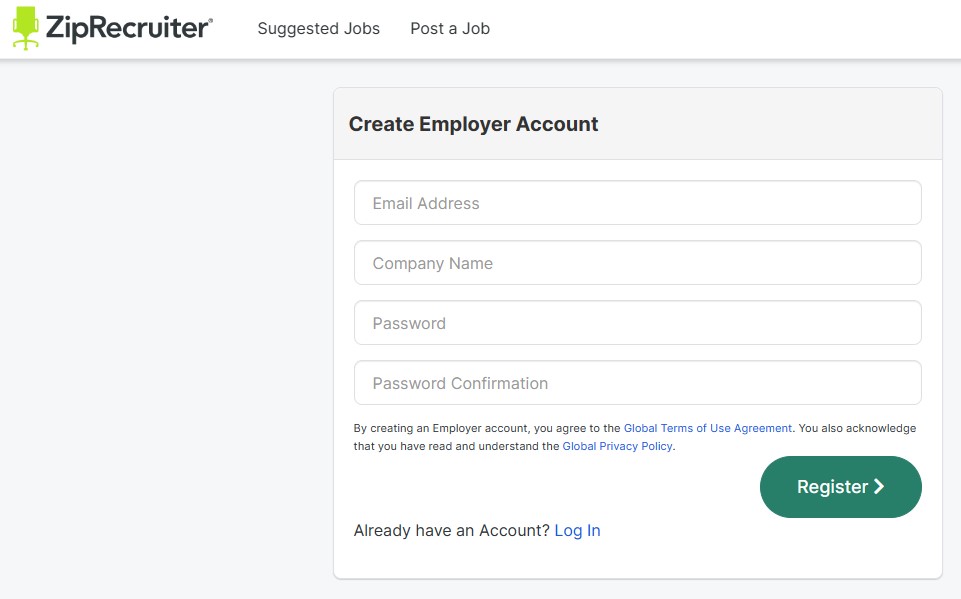
Posting a job on ZipRecruiter comes with a starting cost, and jobs remain live for 30 days. The platform also submits job listings to over 100 other job boards for increased visibility.
Advantages: ZipRecruiter utilizes AI to match jobs with potential candidates, enhancing the efficiency of the recruitment process.
Disadvantages: While effective, it may have limitations in terms of features and functionality compared to other job boards.
WP Job Manager
WP Job Manager comes loaded with features that simplify the recruitment process. Front-end forms allow easy job submissions, while customizable job listing pages and dashboards provide a user-friendly experience. The integration of Google Job Schema ensures that your job listings get indexed on Google, enhancing visibility.
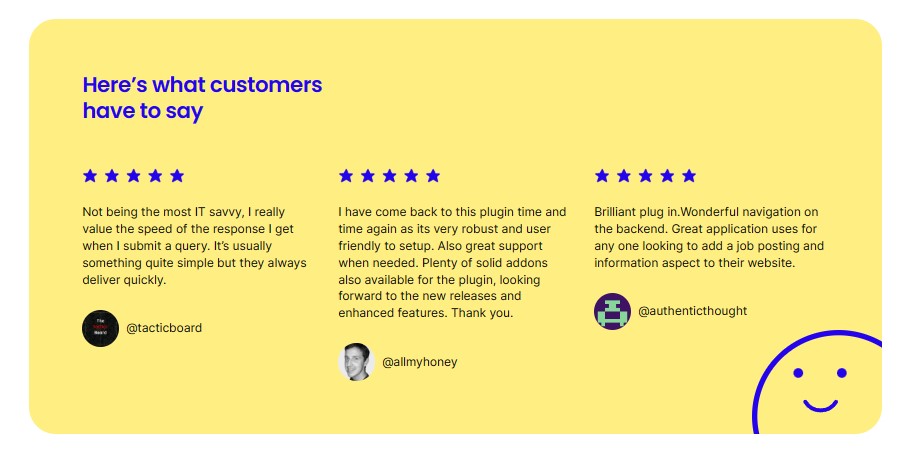
Beyond the core features, WP Job Manager offers a range of add-ons for additional functionality. However, one standout feature is its integration with JobTarget, which can move your recruitment to a global level.
With JobTarget integration, WP Job Manager users gain the ability to post job listings across thousands of popular job boards worldwide. This includes giants like LinkedIn and Indeed, expanding the reach of job postings to a massive audience.
Users simply publish a job, click the Promote button, and select their preferred job boards and a budget. This process ensures that job listings receive optimal exposure without the hassle of managing multiple platforms individually.
The JobTarget integration goes a step further by maximizing reach and minimizing expenses. By automatically selecting the best sites based on job details and leveraging bulk purchasing power, businesses can ensure cost-effective promotion. This automated approach saves time and optimizes the recruitment budget for enhanced efficiency.
Take a look at it in action:
Fred’s Appliance Jobs
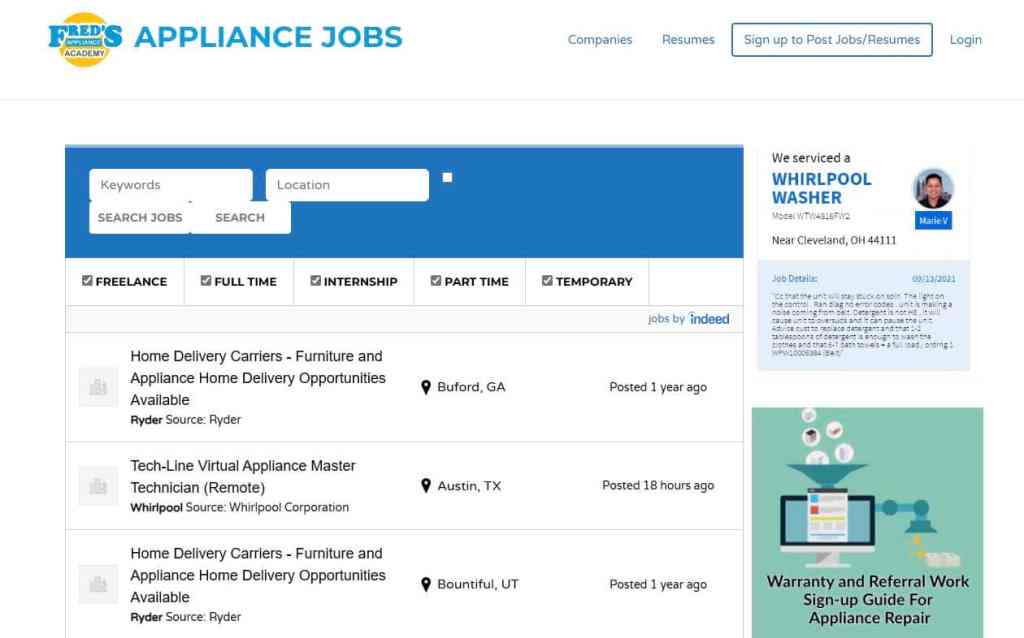
Catering to the niche of jobs related to appliance services, Fred’s Appliance Jobs aggregates positions such as delivery drivers and appliance repair technicians from various companies across the U.S. The WP Job Manager plugin facilitates the organization of these specialized job listings.
Freelance Writing Jobs

A niche job board tailored for freelance writers, Freelance Writing Jobs powered by WP Job Manager brings together opportunities for freelance writers. This platform streamlines the job search process for writers and simplifies the hiring process for businesses in need of writing talents.
WP Job Manager is a great all-around solution to enhance the recruitment process. Whether you’re looking to centralize open-source jobs, appliance-related positions, or opportunities for freelance writers, WP Job Manager will give you the tools to create a customized, efficient, and effective job board.
Take your recruitment strategy to the next level with WP Job Manager
Recruiters can comfortably post job listings now without the traditional recruitment practices that often face challenges like high costs, job listing management, and the struggle to reach the right audience.
WP Job Manager is an all-in-one solution that revolutionizes recruitment strategies. With features addressing common pain points, WP Job Manager helps with job listings and candidate searches. The JobTarget integration takes it a step further, enabling job advertisements on thousands of job boards in addition to your WordPress site.
Choose WP Job Manager for a more efficient and effective recruitment process, and get your job postings to a wider audience today!
